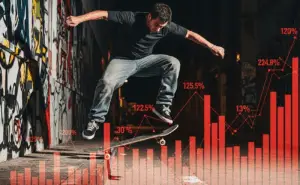I don’t understand all the fuss around the Chancellor question within the Union. Söder had his chance – and he blew it. A Bavarian, especially a Franconian, will never become Chancellor. Maybe if he speaks High German without an accent and comes from another party… maybe.
Merz, this unsympathetic, rising alpha male from the Blackrock crowd, won’t let anyone else rise to power anyway. But is he the right choice for the Union? Söder is still the more likable candidate, and the speculations about conspiracy theories – that the Americans control Germany – are quieter with him. However, Söder surely has his “Amigo” skeletons in the closet, hiding just as much corruption as Merz. And that’s the reason why a Bavarian can never become Chancellor. The rest of Germany believes, and perhaps rightly so, that all Bavarian politicians are “Amigos” – highly corrupt.
Dear Union, this isn’t going to lead to a change in sentiment in your favor against the AfD, the BSW, or the Greens (who are already written off) or the SPD. Who am I forgetting? Ah, the FDP. Lindner is already dreaming of the next legislative period in a government. A little sense of reality would do the FDP good.
And where is the charismatic doer with the good team, likable and not corrupt? The Chancellor candidate I can vote for in a year? I don’t see him. And then? Back to choosing the lesser evil?
Photo: Steffen Prößdorf (via Wikipedia)






